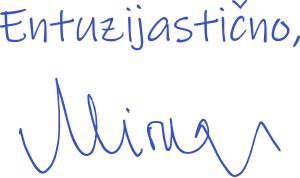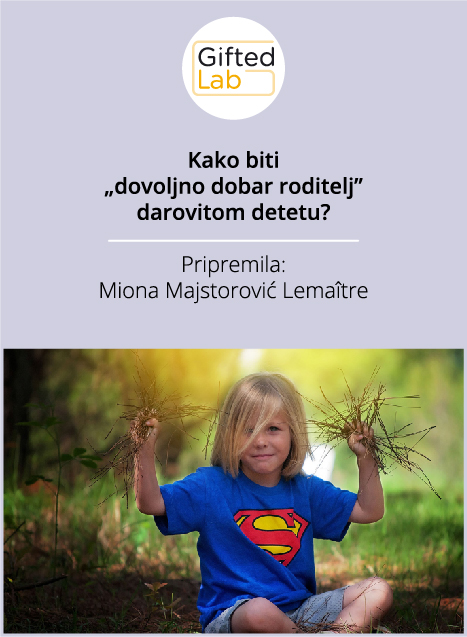Radionice za decu i roditelje
GiftedLab je posebna vrsta laboratorije u kojoj su
radionice za decu i roditelje prostor za razvoj
socio-emocionalnih veština, talenata i darova deteta.
Zajedno radimo na otkrivanju prave karijere na osnovu
jedinstvenog sklopa ličnosti, osobina i kapaciteta, i
podstičemo razvoj deteta kroz igru.
Prva konsultacija je besplatna!
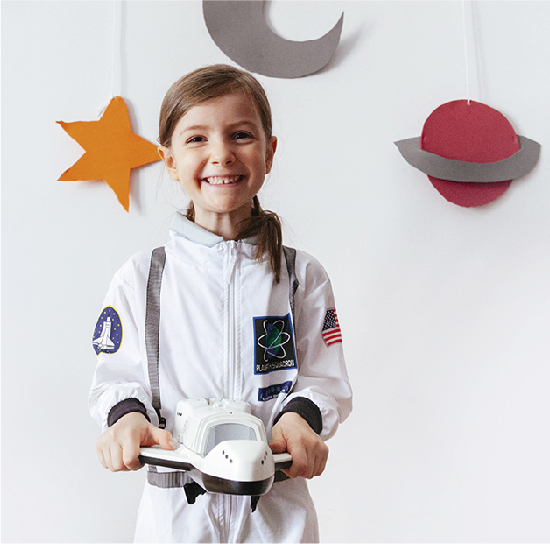
Radionice za decu i roditelje • Programi za vođenje dece ka pravom izboru karijere • Razvoj socio-emocionalne inteligencije i veštine komunikacije • Radionice za edukatore, timove, darovite i dvostruko izuzetne pojednice
Ko sam ja?
Zdravo, ja sam Miona Majstorović Lemaître.
- Specijalistkinja za socio-emocionalno učenje (SEL SECD/SENG) i komunikologiju,
- Akreditovana praktičarka profiliranja jakih strana dece, ranog i cirkularnog karijernog vođenja
- Voditeljka radionica za socio-emocionalnu podršku darovitoj deci, roditeljima i svim darovitim odraslima
- Voditeljka radionica za razvoj potencijala pojedinaca, timova i organizacija
Kao pravi primerak večitog „štrebera”, završila sam 3 fakulteta u tri različite države i vlasnica sam još mnogo sertifikata iz raznih oblasti.
Svoja znanja usmerila sam na pomoć deci i mladima da otkriju i razviju svoje potencijale, jer – osnova svakog uspeha je:
- da dobro poznaju i razumeju sebe,
- budu svesni svojih talenata i razvijaju ih i
- vešto vladaju svojim emocijama i komunikacijom sa drugima
Radionice za decu i roditelje online
- Ako primećujete da je razvijanje brzine razmišljanja, povezivanja i zaključivanja nešto na čemu treba da se radi
- Ako ste roditelj darovitog deteta ali vidite da u školi ne može da ostvari svoj pun potencijal
- Ako teško izlazi na kraj sa „tamnom stranom“ pameti – multipotencijalnost, perfekcionizam, prevelika osetljivost, slaba regulacija emocija i otežana komunikacija sa drugima
- Ako se preganjate oko sređivanja igračaka, odlaska na spavanje, igranja igrica…
Odaberite datum i vreme za uvodnu konsultaciju sa mnom!
Zakažite besplatnu konsultacijuNa čemu radimo zajedno:
-
- Vođenje dece na putu do izbora prave karijere
- Razvoj socio-emocionalnih sposobnosti, upravljanje emocijama
- Razvoj detetovih potencijala, kreativnosti, komunikacije i kritičkog razmišljanja
- Rad sa darovitima i dvostruko izuzetnima
- Podsticanje razvoja darovite dece
•
-
- „Pozitivno i empatično roditeljstvo“ – po svetski priznatim metodama
- Roditeljske grupe za diskusiju i podršku
•
- Otkrivanje i bolja primena potencijala ljudi iz vašeg tima
- Rad na poboljšanju kompetencija edukatora, profesionalaca
- LEGO® SERIOUS PLAY® metode
Pitate se kako da pomognete detetu da izbegne posao
koji će mu stajati kao preveliko odelo?
U saradnji sa roditeljima, pomažem deci da pronađu svoj
put do karijere skrojene po njihovoj meri,
i izbegnu scenario „Daj da radim bilo šta!“, u kom neće biti
srećni.

AKTUELNI PROGRAMI I RADIONICE

Svoje Sreće Pronalazač
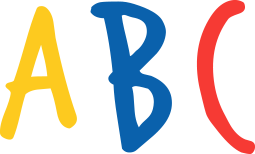
Gramatika Emocija

Kocke i Emocije
Za decu i mlade od 5 do 15 godina
Šta sve nudi GiftedLab?
Otkrijte svoje jake strane. Ovladajte komunikacijom i savladajte emocije. Izgradite pozitivan i zdrav odnos sa svojom decom.
Upoznajte sebe, otkrijte svoje talente i podstaknite svoju kreativnost. Vladajte odnosima u životu i karijernim izborima.
Neka vaša deca nauče da prepoznaju i pobede stres i anksioznost dok su mali
Prihvatite svoje neobičnosti, negujte svoje darove. Živite svoj autentični život srećni.
ZA SVE UZRASTE
Naučite jedan od najlepših jezika na svetu, ovladajte konvrzacijom, savladajte poslovni francuski
Uočite nestandardne profile učenika, primenite pristup „jakih strana” i budite bolja podrška izuzetnoj deci.
Podržavajte zaposlene da rade ono u čemu su dobri, vodite sastanke konstruktivno i efikasnije donosite odluke.
Interaktivne igre priručnici
knjige za decu i odrasle na temu socio-emocionalnih
veština/učenja, darovitošću i dvostrukom
izuzetnošću
MIONA RADIONA
Roditelj za Roditelja
Kako razgovarati sa decom kad komunikacija izgleda kao nemoguća?
Žive diskusije u grupi, razmena iskustava, konkretni primeri i odmah primenljiva rešenja
Budite Vi socio-emocionalni kouč svom detetu
Dobićete efikasna i primenljiva učenja i alate za samostalan rad
Otkrijte svoje jake strane: grupna radionica za roditelje
Zajedno otkrivamo vaše jake strane, učimo kako da ih primenite u roditeljstvu i tako pripremite svoje dete da bude uspešna odrasla osoba.
DIGITALNA MIONA
KONSALTING
Roditeljstvo bazirano na jakim stranama: rad 1 na 1
Naučite da koristite sve svoje jake strane i uz njih budete bolji roditelj.
Profiliranje jakih strana u karijeri: rad 1 na 1
Za sve vas koji želite da promenite karijeru ili svoje potencijale iskoristite na nov način.
MIONA RADIONA
Kocke i Emocije
Zabavljamo se i otkrivamo
emocije. Na zanimljiv način učimo sve socio-emoicionalne
veštine važne za život.
(8-18 godina)
Peers4Play – Smart Games®
Igraonica za grupe vršnjaka.
Učimo se upornosti, strpljenju,
stičemo samopouzdanje i mnoge druge socio-emocionalne
kompetencije uz igrice!
(5-18 godina)
Grupna radionica za decu: Otkrij svoje talente
Otkrijte svoje jake strane i
primenite ih u životu i budućem poslu.
(14-18 i više godina)
Moj budući posao
Upoznajte bolje sebe i otkrijte
koji je vaš budući posao uz LEGO® kockice!
(LEGO® SERIOUS PLAY®
Method)
(14-18 i više godina)
Right BrainLab
Razvijanje desne hemisfere mozga i socio-emocionalno učenje – iskombinovano.
Nek se deca nauče korenitom
opšutanjui korišćenju svih svojih kreativnih potencijala.
Razvijamo osećanja, maštu, koncentraciju i pamćenje kroz igru!
(5-15 godina)
Svoje Sreće Pronalazač
Karijerno profilisanje dece na
osnovu njihovog jedinstvenog sklopa ličnosti.
(8-18 i više godina)
MIONA ČITAONA
GiftedLab Book Club!
Uspešno ste se bacilli u svet odraslih ili vas okolina i dalje ne shvata ozbiljno?
Analiziramo bestseler Džuli Litkot-Hajmskoms: „Kako biti odrastao”.
DIGITALNA MIONA
MIONA UČIONA
Časovi socio-emocionalnog učenja: Rad 1 na 1 / Rad u grupama
Emocionalno pismena deca su
uspešnija, srećnija i sigurnija u sebe – jer sebe dobro
poznaju.
(5-18 godina)
MIONA RADIONA
Unutrašnji svet darovitih, talentovanih i 2e – dvostruko izuzetnih
Daroviti učenici se bore sa perfekcionizmom, strahom od neuspeha, preteranom osetljivošću, neujednačenim razvojem… ali su njihovi potencijali fantastični!
Naučite da ih prepoznate.
(Grupne sesije)
Planeta Multipotencijalista
Ko su „skeneri”, ti moćni svaštari i kako da pronađu svoju magičnu formulu?
Emocionalni QI
Bez govora emocija visoki QI ništa ne znači.
Ono najvažnije je profiliranje vaših komunikacionih veština.
Pristup baziran na jakim stranama u obrazovanju
Grupne radionice za škole.
Dublji uvid u vase lične i
kapacitete vaših učenika.
MIONA ČITAONA
GiftedLab Book Club!
Teorija, praksa i razmena iskustava sa kolegama kroz grupno proučavanje knjiga.
KONSALTING
Obrazovanje bazirano na jakim stranama: rad 1 na 1
Kako da budemo pravi savetnici svojim učenicima na putu ka izboru karijere
Liderstvo bazirano na jakim stranama: rad 1 na 1
Prepoznajte potencijal svakog pojedinca u svom timu.
Budite vođa kog ljudi slede s razlogom.
Govor na javnim nastupima i konferencijama: grupe polaznika
Prevaziđite sve prepreke, budite samouveren govornik, jer Vaš jedinstven sklop darova to može!
MIONA RADIONA
Strategija donošenja odluka i rešavanje kompleksnih problema
LEGO® SERIOUS PLAY® metodologija
Dve kockice sa osam pipaka se mogu spojiti na 24 različita načina, tri na 1060 načina…
Moć ko-kreacije i kreativnog rešavanja problema
Kolektivnom inteligencijom do fantastičnih rezultata!
Rad sa vašim timom uz efikasan set alata.
Razvojni pristup baziran na jakim stranama
Zašto zaposleni gube motivaciju ako nisu na poziciji koja im odgovara?
KONSALTING
KONSALTING Liderstvo bazirano na jakim stranama
Uskladite jake strane karaktera sa aktivnostima koje obavljate.
MIONA RADIONA
Radionica za roditelje darovite dece po SENG (Social-Emotional Needs of Gifted) metodi
Osnažite svoje roditeljske veštine kako biste bili bolja podrška svojoj darovitoj deci.
MIONA UČIONA
Časovi socio-emocionalnog učenja za darovitu decu: Rad 1 na 1 / Rad u grupama
Darovita deca trebaju dodatnu
brigu i podršku da bi uspela. Socio-emocionalna kompetencija
je ključ koji otvara mnoga vrata.
(5-18
godina)
Kouč za učenje za darovite,talentovane i 2e: Pomoć u vođenju svog obrazovnog puta: rad sa detetom
Saveti, podrška i “vođstvo sa strane“ deci sa kombinacijom viskih sposobnosti i dodatnim specifičnostima koje zahtevaju strategije koje podržavaju jake strane, izvršne funkcije i socio-emocionalni razvoj
MIONA PRIČAONA
Cafe za roditelje: Rano karijerno vođenje dece
Sigurno društvo za razmenu iskustava i razgovore o svemu što prolazite sa svojom decom.
Besplatna Pričaonica.
2e Roditelj za 2e Roditelja
Grupa za diskusiju i podršku roditelja dvostruko izuzetne dece
Pričaonica i radionica.
Roditelj za Roditelja po SENG (Social-Emotional Needs of Gifted)
Grupa za diskusiju roditelja koji su pohađali Radionicu za roditelje darovite dece po SENG metodi
(FB grupa zatvorenog tipa – besplatna Pričaonica)
Grupa za diskusiju roditelja koji su pohađali Radionicu za roditelje darovite dece po SENG metodi
(FB grupa otvorenog tipa )
Grupne diskusije: Edukator za Edukatora
Let’s Talk About Gifted!
Daroviti učenici trebaju darovite učitelje
Pričaonica za tinejdžere: Perfekcionizam kod darovitih
Radimo testove samoevaluacije i otkrivamo razlike između perfekcionizma i težnje ka izvrsnošću.
Pričaonica za darovite odrasle: Rad u grupama
Previše razmišljate, lako izgubite interesovanje, osećate da ste drugačiji od ostalih? Hajde da razmenimo iskustva!
KONSALTING
Obrazovni konsalting:
Pomoć roditeljima pri izradi predloga edukacijskog plana za darovito, talentovano i 2e, dvostruko izuzetno dete
Roditelji zajedno sa mnom, kroz testiranja i analize izveštaja, prave plan za određivanje akcija koje su detetu neophodne za usmeravanje, a škola dobija kompletan izveštaj i smernice za rad sa darovitim detetom.
Jake strane vašeg darovitog i 2e, dvostruko izuzetnog deteta: Rad 1 na 1
Darovitost je kompleksna stvar. Toj divnoj deci treba pomoć da naprave red u svojim kreativnim glavicama, u kojima je toliko toga…
MIONA PREDAVAONA
Serijal KCM vebinara (Knowledge Crunching Miona) o darovitosti iz različitih uglova
Kako biti dovoljno dobar roditelj darovitom detetu? Kako biti najbolje u darovitoj koži?
ZA DECU
Francuski za decu od 5 do 18 godina
Interaktivni i zabavni časovi za decu – spoj igre, teorije i prakse!
ZA SVE UZRASTE
Opšti francuski: od početnog do naprednog nivoa
Uz smislene komunikacione aktivnosti i odrasli mogu naučiti francuski jezik od početnog do naprednog nivoa.
Konverzacijski francuski: grupe po nivoima znanja jezika
Rad u grupama od najviše 12 polaznika | Zanimljiv i zabavan material | Igranje uloga | Teme u skladu sa interesovanjima i potrebama grupe
Naučite da pišete na francuskom
Priprema za TCF, TEF IRN, DELF/DALF sertifikate zahteva posebnu vežbu i disciplinu.
Usavršite pisanje zbog škole ili posla, uz prave tehnike i stručno znanje.
Časovi francuske civilizacije, kulture i kuhinje (bez kuvanja!)
Obožavate francusku kulturu i civilizaciju, a naročito ste strastveni prema francuskoj kuhinji? Naučite da napravite svoj kiš loren i foie gras, saznajte odakle dolazi cassoulet… Dobro došli u čaroliju za sva čula!
ZA ODRASLE
Poslovni francuski
Otvorite sebi vrata za zaposlenje u Francuskoj i drugim frankofonim zemljama – Kanadi, Belgiji, Švajcarskoj. Savladajte sve termine iz oblasti kojom se bavite.
Specijalizovani francuski
Bilo da ste pravnik, ekonomista ili specijalista neke druge oblasti – naučićete sve potrebne reči i izraze, a plan i program lekcija se priprema na osnovu vaših zahteva.
ZA DECU OD 5 DO 18 GODINA - Individualne i grupne sesije
Kocke i Emocije
Zabavljamo se i otkrivamo emocije. Učimo sve socio-emocionalne veštine važne za život.
Razmišljanje koje podstiče na razvoj
Da bi deca bila otporna na neuspeh, nephodno je razvijati njihovo razmišljanje po principu: „Growth Mindset against Fixed Mindset”! Saznajte više o ovom programu.
Kako se nositi sa stresom i anksioznošću
Praktična metoda kojom se stres i anksioznost mogu svesti na minimum, čak i kod jako male dece.
SEL za darovitu decu od 8 godina (projektno učenje)
SEL za darovitu decu od 9 godina (projektno učenje)
SEL sa darovitu decu od 10 godina (projektno učenje)
Vođene diskusije za darovite tinejdžere i mlade
Želite da znate koji program bi bio najbolji za Vas ili Vaše dete?
Edukativni i interaktivni programi za decu i roditelje sa elementima igre
Uz razmenu iskustava, mnogo praktičnog rada i edukacije kroz igru – roditelji, deca i mladi:
Biće emocionalno pismeni, komunikativniji i sa više samopouzdanja

Razviće socijalne veštine i veštine rada u timu

Znaće kako da rade na sebi i ostvare svoje ciljeve
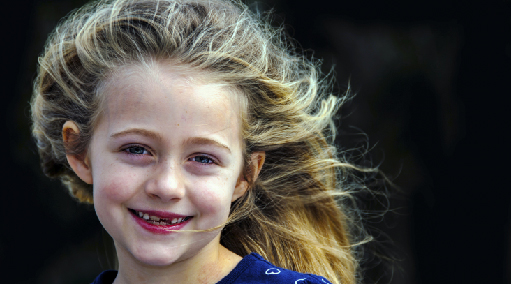
Pobediće lakše stres i anksioznost uz pomoć konkretnih i zabavnih vezbi

Otkriće svoje idealno zanimanje uz pomoć praktičnih alata i zabavnih metoda

Imaće bogat rečnik i opštu kulturu kroz učenje francuskog, jednog od najlepših jezika na svetu

Rad sa darovitom i dvostruko izuzetnom 2e decom
Inspirišemo jedni druge na rast i razvoj kroz pričaonice i grupnu podršku!
• Proaktivan i kreativan pristup potrebama darovite i dvostruko izuzetne, 2e
dece
• Rad na obrazovnim profilima ličnosti počevši od vrtića i
predškolskog uzrasta, pa sve do zrelih godina
• Razvoj socio-emocionalnih veština
Zašto roditelji i deca vole GiftedLab?
Nova saznanjao svojoj deci i sebi samima, uverenja za koje se ispostavi da su
pogrešna i odmah primenljivi alati– vrednosti su zbog kojih i deca i roditelji
vole
moje programe i radionice.
Moja misija je ispunjena svaki put kad:
• roditelji shvate da ocene u školi nisu ključne za uspeh deteta u
životu – već razvoj
socio-emocionalnih veština i talenata
• razbiju uverenje da oni sami nemaju nikakve darove i shvate da je dete
darovito jer je
nasledilo njihove sposobnosti
• otkriju detetov jedinstven set darova i sklop ličnosti – koje su nesvesno zanemarivali
• upoznaju svoje jake strane, ključne osobine za uspeh u roditeljstvu i u poslu.
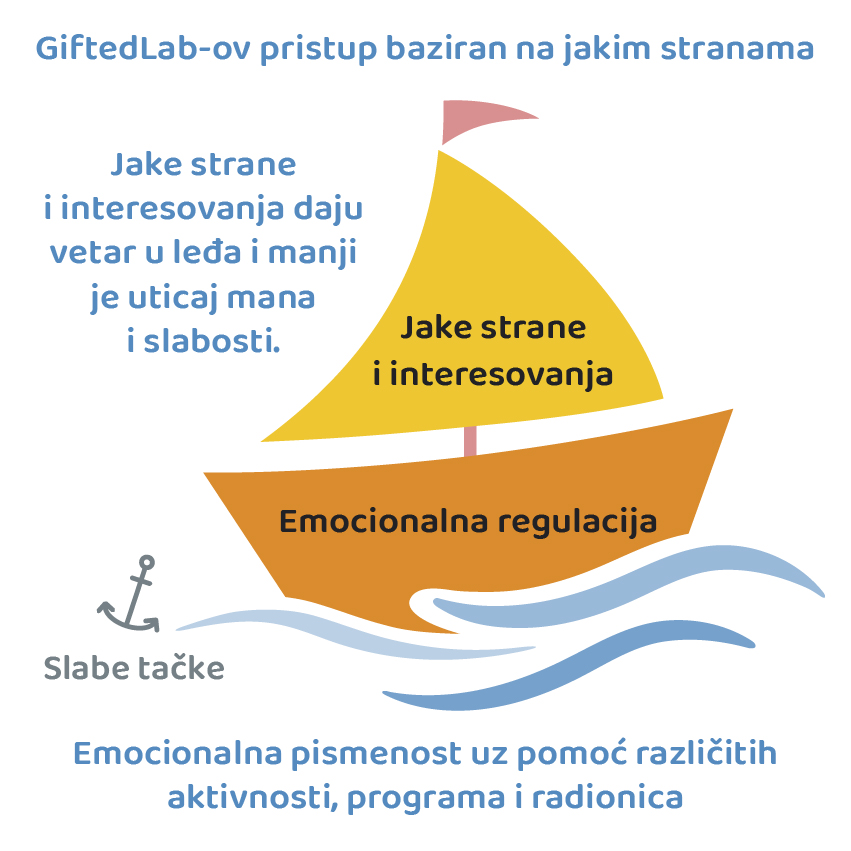
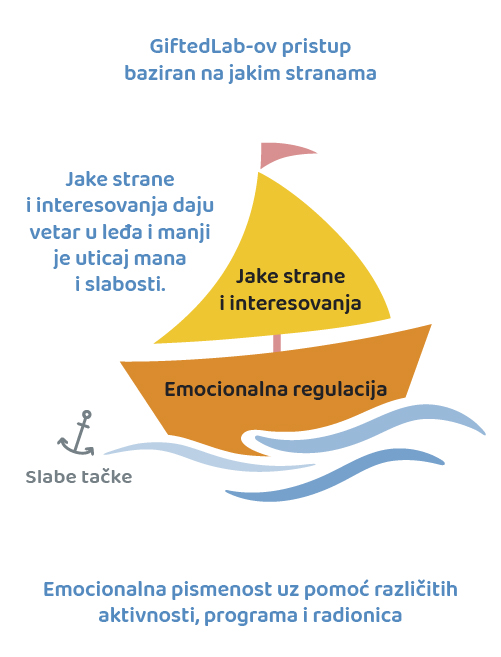
UTISCI RODITELJA I DECE
NALOG
ZAINTERESOVANI STE ZA RAD SA MNOM?
POSTOJEĆI KLIJENTI
sledeću sesiju sa mnom.
Besplatan sadržaj za decu i roditelje
Korisni tekstovi na blogu, besplatne pričaonice i
konsultacija od 30 minuta na kojoj ću vam pomoći da
se odlučite za program koji bi vama i vašem detetu najviše
odgovarao.
Mnogo korisnih tekstova na blogu!
Besplatne pričaonice za roditelje darovite dece
Besplatna konsultacija od 30 minuta.
Besplatan PDF:
Kako biti dovoljno dobar roditelj darovitom detetu?
• Biti roditelj darovitom detetu zahteva izmene u načinu roditeljstva,
podučavanju i psihološkoj brizi kako bi se ova deca optimalno razvila.
• Karakteriše ih začuđujuće pamćenje, sposobnost fokusiranja i produžene
koncentracije, ali i velike nekoncentracije kada ih neka stvar ne zanima.
• Osetljivost čula je velika, mogu biti jako intenzivni i zahtevni – i prema
sebi i prema drugima…
Prijavite se na moj Newsletter i preuzmite besplatno ovaj koristan
PDF.
Saznaćete:
• Koje su to urođene karakteristike darovite dece?
• Koji sve tipovi roditelja darovite dece postoje?
• Koje su to blokade na putu roditeljstva?
• Kako razviti jedinstvane potencijale svog deteta?
ČESTO POSTAVLJANA PITANJA
Osim autorskih programa, pedagoških materijala za decu i odrasle, podučavanja i savetovanja – nudim vam i priznate programe, proverene i dobre prakse koje postoje u svetu.
U svetu gde razvoj tehnologije ide brže od razvoja ljudi, nudim vam mesto gde i deca i odrasli rade na otkrivanju i razvijanju svojih darova, socio-emocionalnih veština, učenju tehnika opuštanja, razvoju svoje sopstvene kreativnosti.
- Onlajn obuke i treninzi (Digitalna Miona)
- Predavanja na razne teme (Miona Predavaona)
- Raznovrsne radionice za decu, roditelje, edukatore, timove i organizacije (Miona Radiona)
- Pričaonice za darovite i grupne diskusije na temu darovitosti (Miona Pričaona)
- Karijerno i obazovno savetovanje (Konsalting)
- Grupno proučavanje knjiga za profesionalce i Čitalački klub za mlade i odrasle (Miona Čitaona)
- Pasioniranim učenicima, koji su uvek željni novih znanja i istraživanja
- Darovitim, talentovanim i dvostruko izuzetnim ljudima i deci, koji žele da razviju i maksimalno iskoriste svoje potencijale na svim životnim poljima
- Roditeljima koji žele da nauče kako da se bolje nose svojim i emocijama svoje dece
- Roditeljima koji žele da njihova deca imaju parvo usmerenje pri izboru buduće karijere
- Kreativcima i učenicima koji uživaju u rešavanju problema
- Edukatorima, profesionalcima i organizacijama koji žele da rade na razvijanju potencijala ljudi, kapacitetima i reorganizaciji načina rada i svojih zajednica
- Svima koji su svesni toga da je socio-emocionalna inteligencija najvažnija veština u 21. veku
Nudim vam dosta programa iz oblasti psihologije i komunikacije, s tim što osnova nije psihoterapija nego obrazovna psihologija (bolje sprečiti nego lečiti) – koja služi prevenciji problema.
Iz tog razloga radim sa decom već od 4, 5 godina – približavam im „apstraktnu psihologiju“ na kreativan i zanimljiv način, dajem alate neophodne za uspešan, zdrav i srećan život. Sve se prilagođava uzrastu i tipu deteta.
Pored stručnog vođstva kroz socio-emocionalno učenje, nudim i konkretna rešenja i pomoć da se razvijaju darovi dece, a da se umanje slabe tačke – kroz koučing za učenje i rano karijerno vođenje.
Roditeljima, edukatorima i drugim profesionalcima kroz rad dajem najnovije tehnike i metode kako da rade na svom razvoju i razvoju dece.
- Razvoj potencijala, imaginacije, kreativnosti, koncentracije
- Razvoj empatije, samoreguacije, socio-emocionalne inteligencije
- Rad u timu i vladanje odnosima sa drugima, solidarnost, poštovanje moralnih vrednosti
- Komunikacija, ko-kreacija, kritičko razmišljanje i inovativni pristupi učenju
- Odabir prave karijere po jedinstvenom sklopu ličnosti
- Razvoj potencijala darovite, talentovane i dvostruko izuzetne dece
U okviru GiftedLab zajedice ima dosta besplatnih programa.
Što se tiče programa i radionica koje se plaćaju, cene variraju u zavisnosti od vrste programa/radionice i od toga da li se radi u grupi ili su u pitanju pojedinačne sesije.
Budite slobodni da mi pišete na imejl – poslaću vam cene i dodatne informacije u vezi sa svime što vas zanima: miona@giftedlab.org
Uskoro će biti dostupi i paketi usluga za klijente većeg broja usluga, po posebnim cenama.
“Budite podrška svom detetu u izboru prave karijere.
Negujte svoje i njegove talente.
Budite lider i na poslu i u privatnom životu.
Vladajte svojim emocijama.”
